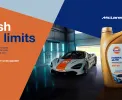Which generation knows the most about car maintenance?
24 Nov 2022
When it comes to looking after your car, there is plenty you can do yourself without needing to take it to a garage. From checking your oil to changing a tyre, there are simple tasks that every car owner should be able to do. However, not everyone knows how to carry out regular maintenance checks on their vehicle, what vital parts do, or how to spot something that needs fixing.
It’s fairly obvious when you have a flat tyre or need to top up your screenwash. But do you know what it means when you hear a grinding sound? Do you know what a catalytic converter does? Are you surprised to hear that a car radiator doesn’t actually heat up the inside of the car and keep you warm?
We wanted to find out how much people know about their cars and see if different age groups performed better when it comes to car knowledge. Amid a cost of living crisis, it’s more important than ever to properly maintain your car to avoid costly repairs. So, we asked a series of car maintenance questions to car owners in the UK to find out which generations are the most knowledgeable.
How is our car knowledge overall?
We found that 69.68% of people know how to maintain their car. Respondents were particularly strong in their knowledge of where to find a dipstick (88.77% correct), when the brake pads need replacing (79.89%) and how to check their engine oil (79.89%). However, knowledge was poor when it comes to changing a tyre (58.56%) and understanding what the catalytic converter does (73.53%). Additionally, only 27.88% of respondents knew that you can find your tyre pressure in the sill of the driver’s door, the car’s handbook and the fuel tank flap.
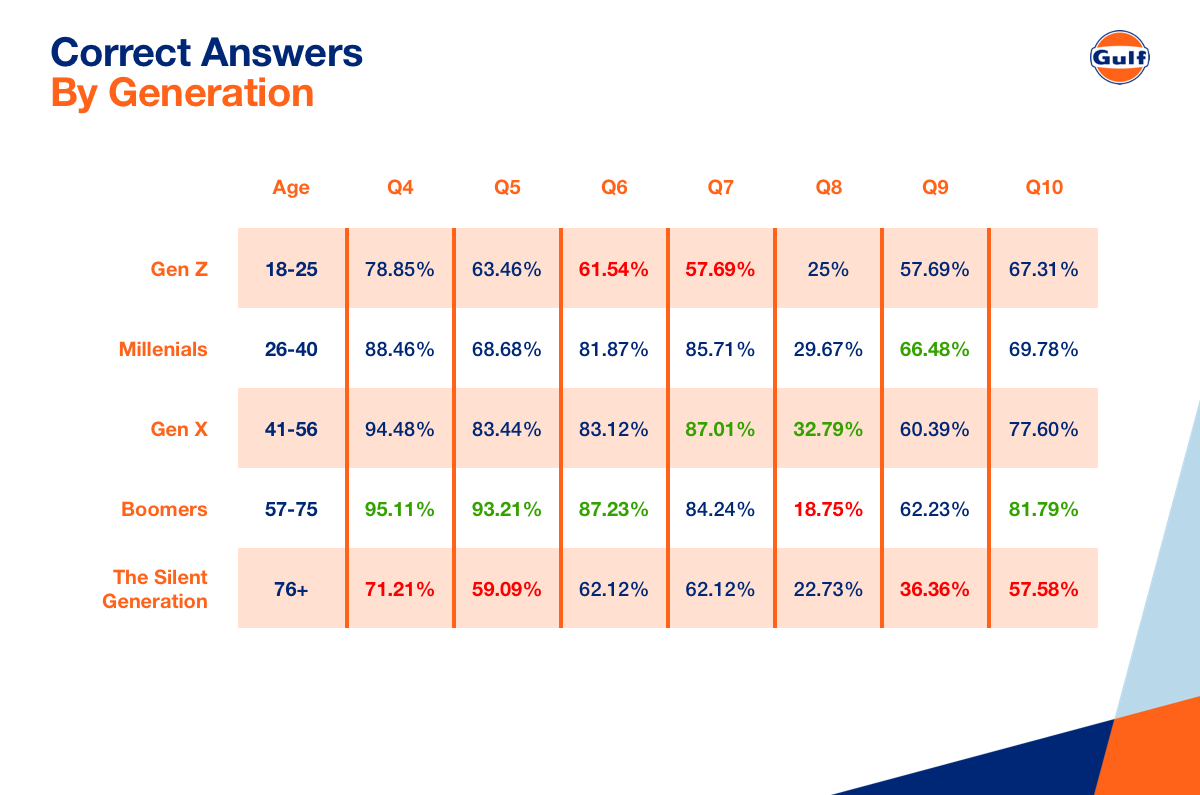
Gen Z Car Knowledge (18-25)
The younger generation were the least knowledgeable when it came to checking engine oil, with only 61.54% knowing how to check, and only 57.69% could spot the warning signs of when car brakes needed to be changed. Gen Z has proven that they can get by when it comes to taking care of their car, however they did rank the second lowest for their overall car knowledge.
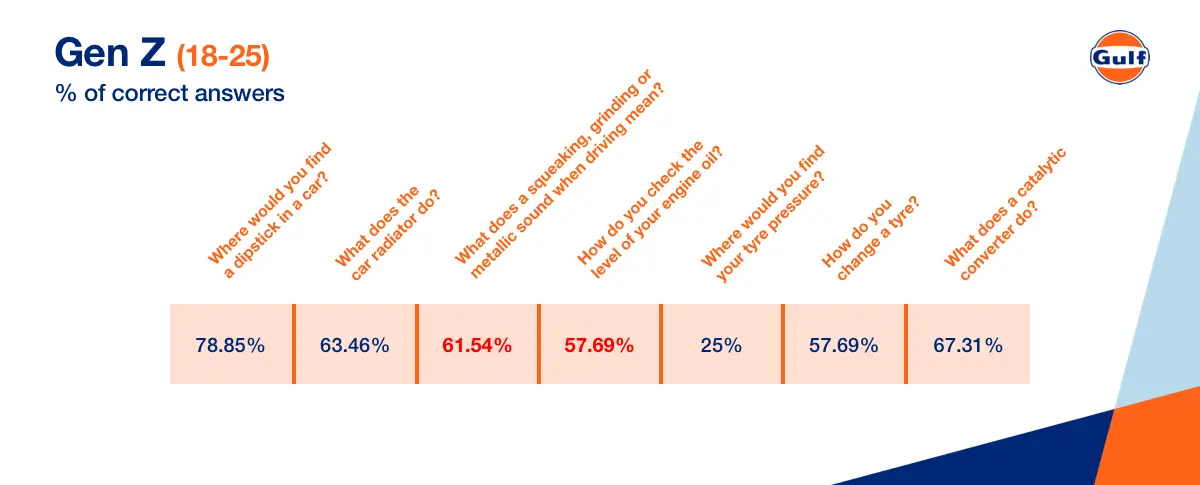
Millennial Car Knowledge (26-40)
In recent years, Millennials have gotten a bad reputation, but when it comes to their car knowledge we only have good things to say. In fact, Millennials came out on top with their knowledge of how to change a tyre! Overall, Millennials took the middle spot for their overall car knowledge.
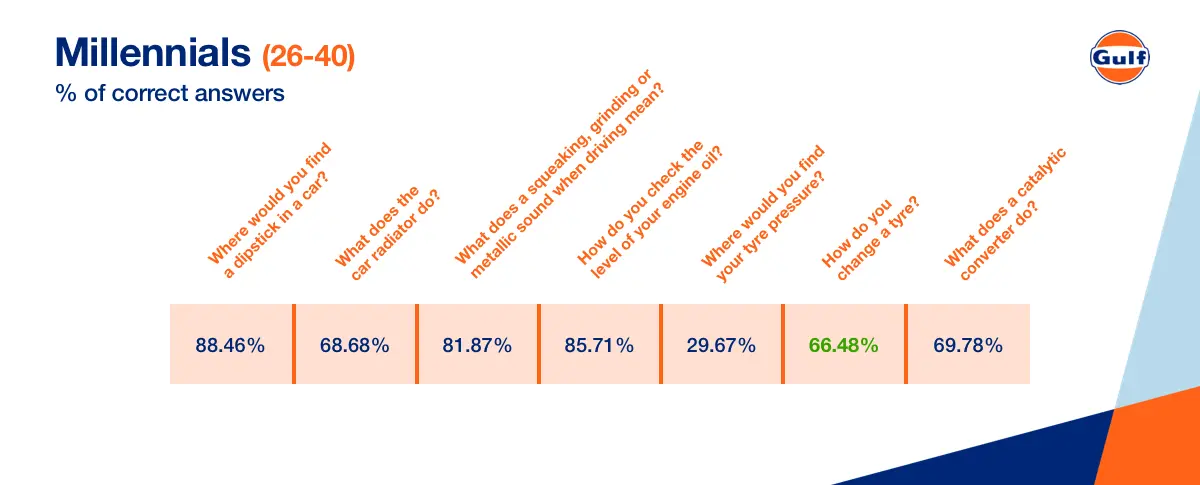
Gen X Car Knowledge (41-56)
They were the second-highest scoring generation with their overall car knowledge and came out on top in two categories. 87.01% of Gen Xers knew how to check their engine oil, which was the highest percentage of any category. Additionally, they were also the most knowledgeable generation when it comes to knowing where to find the correct inflation requirements for tyre pressure. 32.79% of respondents were aware that you can find the recommended tyre pressure in the sill of the driver's door, the car’s handbook and the fuel tank flap.
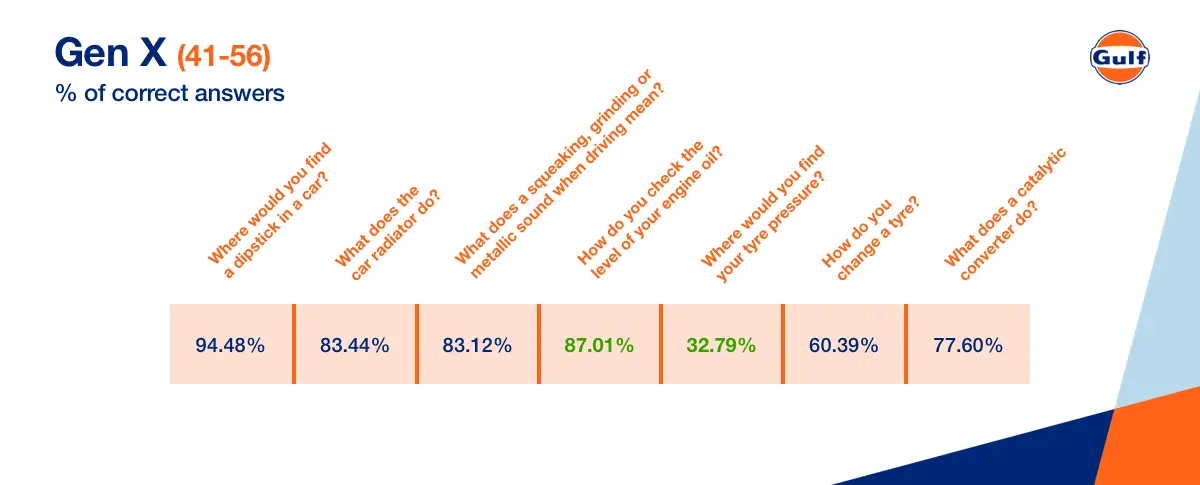
Boomers Car Knowledge (57-75)
Now we come to the most knowledgeable generation. Boomers scored 74.65% overall for their car knowledge and came out on top in three categories. 95.11% of respondents knew where to find the dipstick, 93.21% knew what the car radiator was for and 87.23% knew the warning signs for when their brake pads needed to be replaced. Boomers did, however, score the lowest in their knowledge of where to find the recommended tyre pressure with only 18.75% answering correctly.

The Silent Generation Car Knowledge (76+)
The Silent generation has the poorest overall knowledge of how to maintain their car. Over 76s only answered correctly 53.03% of the time and scored the lowest in 4/6 categories. 71.21% of respondents knew where to find the dipstick, 59.09% knew what the car radiator was for and 57.58% know what a catalytic converter does. Possibly more surprisingly, only 36.36% of respondents knew how to change a tyre.
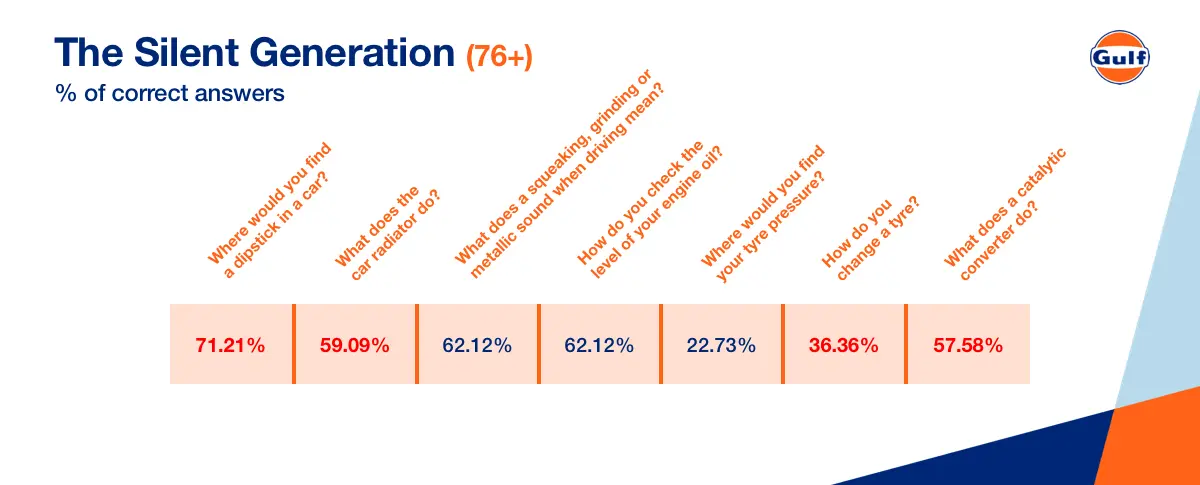
Men Vs Women
Men performed only slightly better than women. Men had an average of 76.05% correct answers compared to women who answered correctly 70.63% of the time. However, women outperformed men in two categories. Women had a better idea of when their brake pads needed to be replaced, with 87.35% answering correctly compared to 82.59% of men. Additionally, women also had better knowledge of how to check the level of their engine oil with 89.29% answering correctly compared to 82.19% of men.
Conclusion
Overall, The Silent Generation of over 76s were the least knowledgeable when it comes to maintaining their car. However, this could be due to a number of factors including driving less frequently, passing their driving test a long time ago, or having help from friends and family to carry out maintenance tasks. Boomers, aged 57-75, were the most knowledgeable generation followed by Gen X, Millennials and finally Gen Z.
While there are many factors that could have influenced the results, such as career and overall interest in cars, the results suggest that we could all take more responsibility of our cars. It is crucial now, more than ever, given the cost of living crisis that we improve our knowledge to avoid costly vehicle repairs that are just simple maintenance fixes.
Methodology
We used Google Surveys to gather the data from 1069 respondents over the age of 18 in the UK. This ran in two parts from 28th September - 5th October 2022 and again on 14th October 2022. The survey included 10 questions with multiple-choice answers for each question. We asked respondents the following questions:
- Do you drive?
- How old are you?
- What is your gender?
- Where would you find a dipstick in a car?
- What does the car radiator do?
- If you hear a squeaking, grinding or metallic sound when driving, what does it mean?
- How do you check the level of your engine oil?
- Where would you find your tyre pressure?
- How do you change a tyre?
- What does a catalytic converter do?
Once the surveys were complete, we combined the data and analysed it to form the basis of this study.
Answers marked in green - Most knowledgeable
Answers marked in red - Least knowledgeable
*This study currently only includes UK data.


